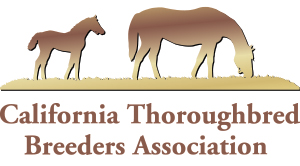By Bloodhorse.com
SACRAMENTO, Calif. (Apr. 5, 2016) — California Authority of Racing Fairs announced April 5 that executive director Christopher Korby will retire as of Nov. 1 after 29 years.
During his years of service, Korby was instrumental in leading the organization through an era of significant growth, CARF said in a release, noting he launched simulcast operations for live horse racing from fairs and played a key role in establishing California’s state-wide satellite wagering network. Korby has served as CARF’s executive director for 16 years.
“We’ve been fortunate to have Mr. Korby with us for so many years,” said John Alkire, chairman of the CARF board of directors. “He’s brought foresight, energy and innovation to his service here. His contributions have been invaluable.”
“I’d like to express my appreciation to our board of directors for the opportunity to serve for all these years,” Korby said. “It’s been both challenging and rewarding to be a part of the racing industry and the fair industry during years of dynamic changes to both.”
Korby sits on the board of directors of Northern California Off-track Wagering Inc., the board of Southern California Off-track Wagering Inc., Northern California Vanning and Stabling Committee, and the California Marketing Committee. He’s served as chairman of the NCOTW board and the Vanning and Stabling Committee as well as co-chair of CMC.
Korby began his career in the racing industry in 1977, working in television production at a number of California tracks and in 1987 joined CARF as director of technical operations and development.
After 1987 legislation that authorized off-track pari-mutuel wagering at fairgrounds throughout the state, Korby had a role in the helping build California’s statewide simulcast network.
Korby has also overseen changes to racing and simulcast operations at CARF member fairs, including consolidation of racing dates, a joint venture with Oak Tree at Pleasanton, three statewide changes in totalizator systems, a successful horse recruitment program, negotiation of multiple ADW contracts for fairs, a consolidated purse program managed by a single racing secretary, and establishment of the CARF track safety and maintenance program.


